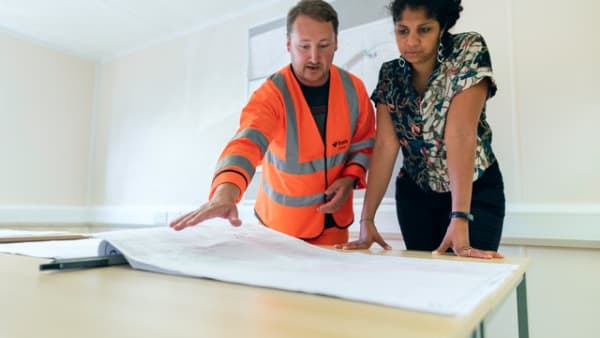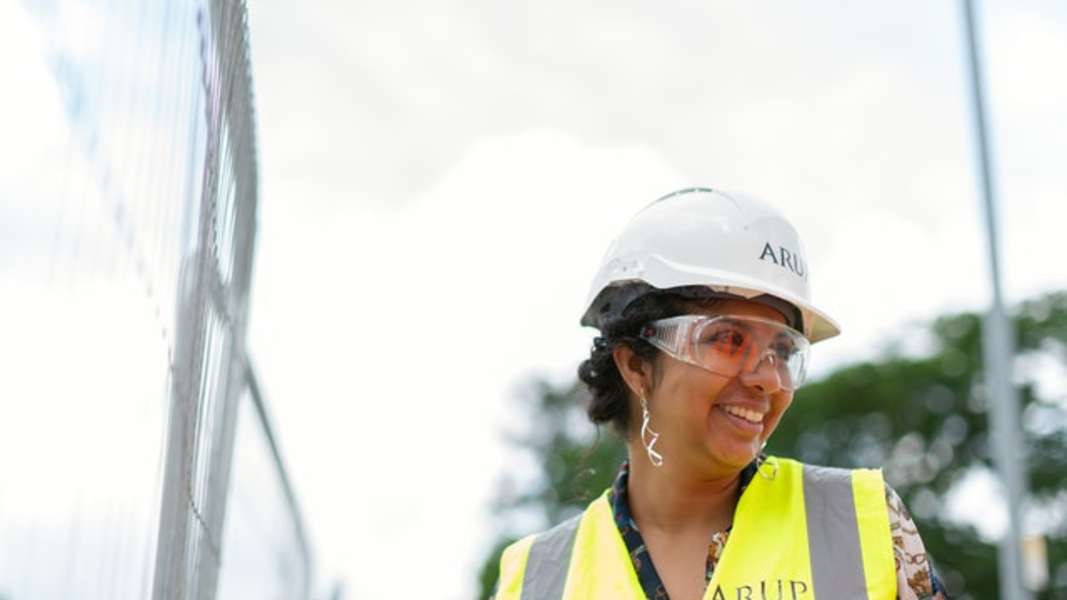
How To Hire A Civil Engineer
May 18, 2022

Civil engineers are responsible for the safe planning, designing and overseeing of construction projects such as roads, bridges, railways, airports and power plants.
Civil engineers are highly skilled mathematicians and logisticians with a knack for IT and science. Their expertise is crucial for creating and maintaining projects that contribute to safe and accessible public infrastructure.
Civil engineers also need to be excellent communicators; accountable for their decision-making and skilled in both teamwork and leadership.
Hiring a civil engineer with the right combination of technical abilities and soft skills is essential if you want to ensure the safety, longevity and success of your construction projects.
This article will help you to determine the best combination of tests to use and questions to ask in the interview process, so you can ensure you're hiring the best talent possible, in the fairest way.
What should a civil engineer be able to do?
Civil engineers should be able to demonstrate their ability to carry out their work while adhering to safety, government and environmental regulations. This means that a keen eye for detail and an ability to recognise errors quickly are important.
Office-based tasks that should come naturally to a civil engineer include working out load and grade requirements, planning and designing effective systems, analysing reports and data, costing up materials and identifying environmental risks. This is just the tip of the iceberg when it comes to the day job, so a good civil engineer will be a fast learner and not afraid to ask questions.
While working on-site, civil engineers need to feel confident managing and directing operations to ensure their careful planning work is successfully executed. Should mistakes happen, a civil engineer should be able to quickly design or implement systems and processes to right any wrongs and ensure minimum disruption to the project and people.
Highly qualified candidates tend to be passionate about the sector, and interested in learning from industry best practices in order to better their own work.
Skills to look for in a civil engineer
When hiring a civil engineer, it's important to note down the skills you need to see to ensure you're investing your time into only the highest calibre candidates. The skills listed below are some of the most crucial to look for in your applicants.
Presentation skills: as well as crafting presentations to sell ideas, civil engineers will be expected to present their work in a persuasive and engaging manner.
Confidence with graphics and/or photo imaging software: being able to use graphic and photo imaging software is essential when it comes to the design stages. As part of the hiring process, it's worth checking whether candidates are familiar with the software you use on a daily basis for these tasks.
Knowledge of computer-aided design (CAD) software: CAD software is a civil engineer's best friend, so it's critical to probe applicants as to how comfortable they are with the programs your company uses.
Command of Microsoft Office suite: writing documents, creating presentations, scheduling meetings and sending emails are just some of the daily tasks that make up the role of a civil engineer. Confidence in the majority of the Office programs will help reassure you that you're hiring the right person.
Project management: project management expertise can be the difference between an average civil engineer, and a great one.
Useful abilities for a civil engineer
Abilities are additional things to look out for as part of the hiring process. They might be less explicitly laid out on someone's resume, but they're still critical to examine if you want to ensure you're hiring the best possible person for your civil engineering vacancy.
We'd recommend tailoring your interview questions or trying to test for the following abilities:
Problem-solving: whether it's in the planning, design or construction phase, chances are there'll be multiple problems to solve along the way. Natural problem solvers often make really strong civil engineers.
Communication: civil engineers will be required to work with multiple people, in different roles and at varying levels of seniority, and they need to be able to communicate well with everyone to ensure the smooth running of the project.
Teamwork: all civil engineering projects require multiple people to make the end result happen — which means teamwork is essential.
Attention to detail: being able to spot errors that could lead to both small and serious ramifications is a really vital skill.
Mental maths skills: civil engineers with a natural aptitude for numbers will find many aspects of the role easier than those who aren't as competent.
Which soft skills tests could I use to hire a civil engineer?
Civil engineers are required to prove a variety of different technical capabilities before being hired, but that doesn't mean you should neglect their soft skills.
Looking for the following competencies will help you to hire a really strong civil engineer:
Time management:civil engineers have to juggle lots of moving parts, as well as meetings with various different people. Those who can demonstrate an understanding of the importance of time management are likely to be better suited to the role than those who don't see it as important.
Accountability:being able to demonstrate ownership and integrity, especially when things have gone wrong, is an admirable quality and especially in roles like civil engineering when working as a team is so essential.
Adaptability: the world of civil engineering moves fast, and changes happen often. A good candidate will be able to show they're comfortable being flexible and adapting when needed to benefit the wider project.
Which technical or aptitude tests could I use to hire a civil engineer?
The right combination of aptitude tests will support your recruitment process and help you streamline candidates so you're investing time into the right people.
When hiring a civil engineer, you can use these tests to help you make your choice:
Mechanical reasoning: putting candidates through their paces and ensuring they're comfortable with different mechanical and engineering principles is important if you want to find a candidate you can rely on.
Logical reasoning:using logic to solve complex problems is an essential part of being a civil engineer, so make sure they have what it takes by using a test such as this.
Numerical reasoning: numerical problem solving and time conditions will help you assess which candidates possess strong mathematical skills, a really useful skill in the field of civil engineering.
Our recommended test battery for a civil engineer
We recommend the following combination of tests when it comes to hiring a civil engineer:
Mechanical reasoning: it's essential that all civil engineers are comfortable with mechanical principles such as forces, levers and pulleys. Assess candidates and get a good sense of where their skill level lies with a mechanical reasoning test.
Numerical reasoning:a head for numbers will serve candidates well. The tight time pressure and speed at which the questions need to be answered will help you see who has a natural aptitude for numbers.
Logical reasoning: being able to think rationally in high-pressure situations is an excellent attribute, especially in engineering where there's the potential for a lot to go wrong.
Accountability: finding a candidate who is prepared to take ownership of their actions, both good and bad, is essential.
For more information, have a read through our civil engineering test guide.
Boost your hiring power.
Start using Neuroworx today.
Talk is cheap. We offer a 14-day free trial so you can see our platform for yourselves.
Try for free




